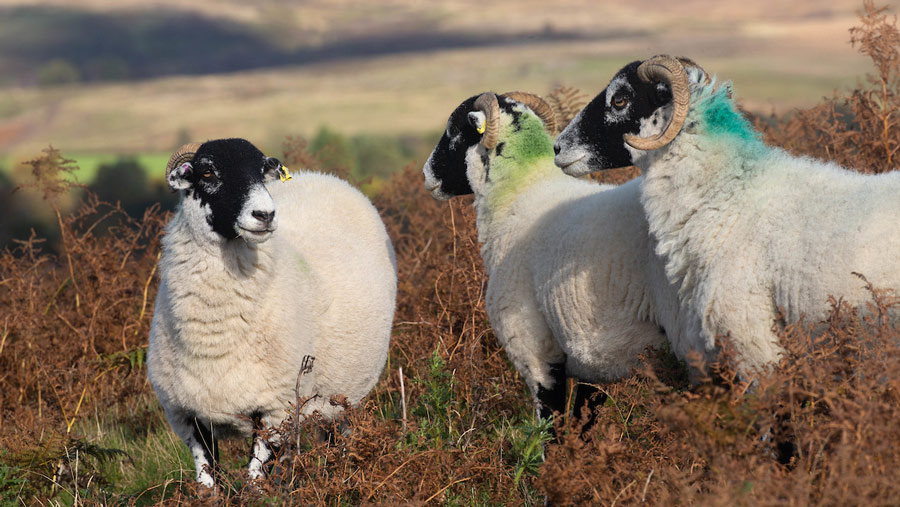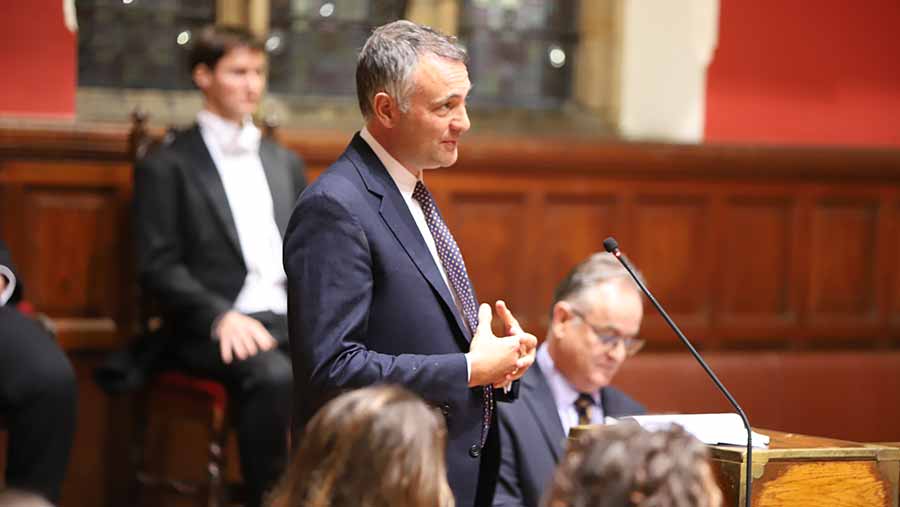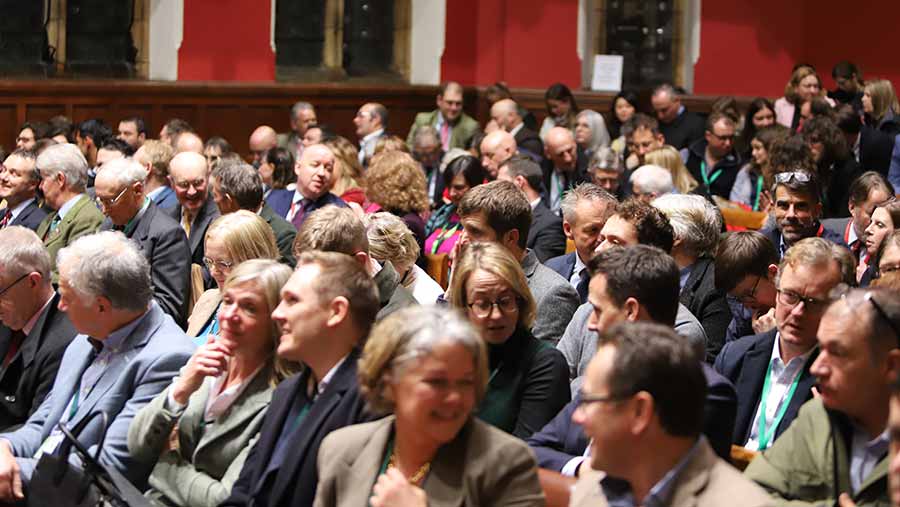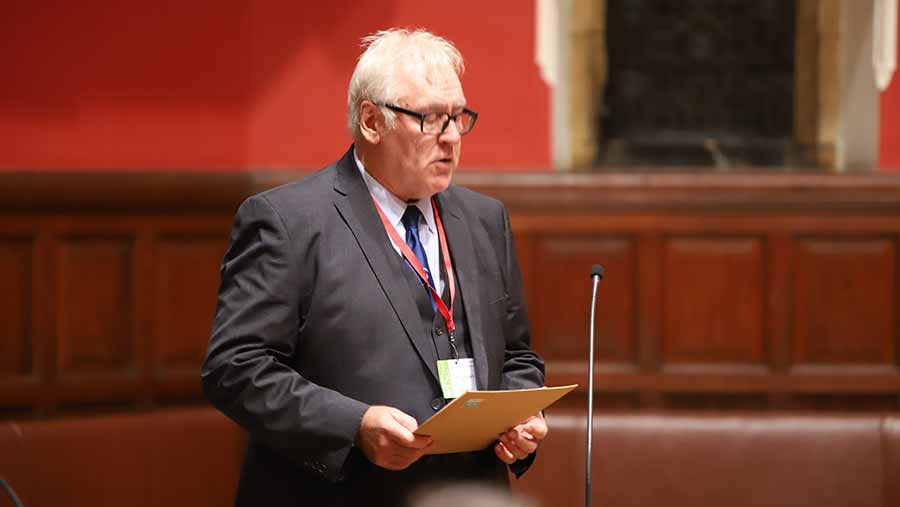OFC 2024: ‘Food production and nature recovery go hand in hand’
 © Tim Scrivener
© Tim Scrivener Delegates attending the recent Oxford Farming Conference have rejected the idea that commercial farming in national parks and other protected landscapes is holding back nature recovery – the subject of the traditional Oxford Union debate on the Thursday evening (4 January).
Well-known environmentalist and chairman of the Conservative Environment Network, Ben Goldsmith, set out the arguments against “farming for food” in sensitive areas, with a scathing attack on sheep production.
See also: ORFC spreads message of hope for food and farming

Ben Goldsmith © Oxford Farming Conference
Referring to sheep as having “feet like stilettos at a festival”, Mr Goldsmith criticised the environmental damage done in upland areas, for little commercial or productive gain.
Quoting from the National Food Strategy report, he said less than 2% of food in Britain comes from the least-productive 28% of land – “in other words, our national parks”.
“It’s not for prosperity, and no one is making a decent living out of sheep,” he said. “Even with subsidies, which account for 80-90% of the average sheep farmers’ income, £6,000-£7,000 is the average net income in the uplands,” he said.
Yet sheep delivered little in the way of public goods. Indeed, flooding in the downstream catchments was a direct result of sheep farming in the uplands, he suggested.
Abandoning sheep farming would lead to an “explosion” of nature, Mr Goldsmith claimed, especially if they were replaced with native breeds of cattle, such as Belted Galloways and Longhorns, to provide a “mosaic” of pastures and wild fallow.

© Oxford Farming Conference
Challenge
But Mr Goldsmith’s views were challenged by Cumbrian hill farmer and recent past chairman of the Swaledale Sheep Breeders’ Association, Will Cockbain.
“Grazing animals do, can and will play a role in the environmental management and nature recovery, as well as food production,” he said.

William Cockbain © Oxford Farming Conference
One example he gave was dung beetles, which play a role in reducing greenhouse gas emissions – and the favourite diet of dung beetles is sheep muck (followed by deer muck, pony muck and then cow muck).
Another example was the decline in certain semi-alpine plant species in upland areas, which had been shaded out by more vigorous grass species, attributed to the reduction in sheep numbers on the moor.
Mr Cockbain said it was crucial to look at “environmental good” holistically and not just focus on the single metric of overgrazing.
“Even sheep can contribute to nature recovery – the same sheep that are often referred to as ‘wooly maggots’,” he said.
Contributions
The debate attracted a number of contributions from the floor, including from NFU vice-president David Exwood, who insisted that the best landscapes were the ones that enjoy a mix of environment and farming, as farmers created food sources, not just for people, but for wildlife too.
Oxfordshire farmer Tom Allen-Stevens blamed the “wolf in the countryside” for nature decline, namely multiple retailers that had driven down prices and standards to the detriment of the environment.
Farmers were “complicit, but not culprits”, he said.
A vote at the end of the debate saw 272 delegates reject the motion “farming for food is holding back nature recovery in protected landscapes”, compared with 109 who agreed with the statement.
